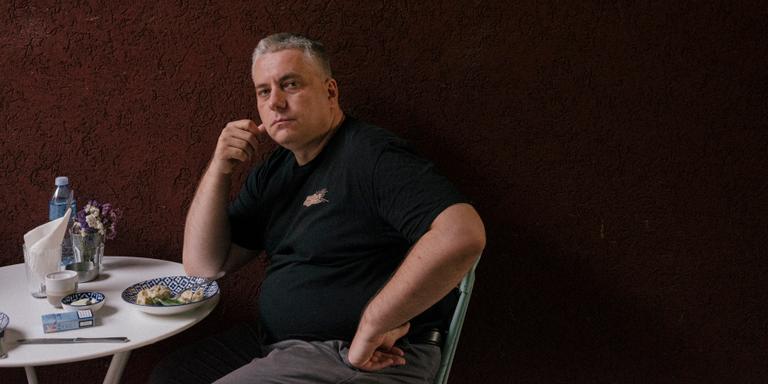


Russian exiles in Serbia face expulsion threats
FeatureSerbian authorities, aligned closely with Moscow, have labeled certain Russian citizens exiled in Belgrade since the onset of the war in Ukraine as potential 'national security' risks.
Since the start of the war in Ukraine in February 2022, Russians in Belgrade have adopted the habit of congregating at the newly established restaurants offering their native cuisine in the Serbian capital. This Balkan country has become one of the main exile destinations for tens of thousands of Russians who fled their homeland's repression and mobilization orders. With its strong pro-Russian sentiment and refusal to align itself with European sanctions, Serbia paradoxically stands as one of the few European nations that maintains an open relationship with Russia through visa-free travel and direct flights from Moscow.
However, this particular Serbian exile for Vladimir Putin's opponents now seems to be nearing its end. On Monday, September 4, over a plate of pelmenis, the traditional Russian ravioli, Vladimir Volokhonsky and Peter Nikitin made no secret of their fear that Serbia was turning into a trap. Volokhonsky, who came in May 2022 and remains officially an opposition district councilor in St. Petersburg despite leaving Russia over a year ago, was the first to notice the wind change. "In May, I wanted to renew my residence permit, but after several months of waiting without a reply, I was finally told in late July that I was a risk to national security," said this 44-year-old data analyst, who landed in Serbia somewhat by chance after first fleeing his native country for Uzbekistan.
Sitting beside him, Peter Nikitin, a serious-looking man sporting glasses, claimed to have been detained by Serbian police at Belgrade airport when he returned from a trip to Portugal in July. After having spent hours in the waiting area, the police finally explained to this legal interpreter who studied in Europe "that the BIA [Bezbednosno Informativna Agencija, the Serbian intelligence service] had issued a ban on entering" the country where he has lived with his family since 2020. He had to alert the local media and the Dutch embassy, of which he is also a national, in order to be able to return home.
Hostile passers-by
"I have no doubt this is due to my activities," assured Nikitin. The two men are known in Serbia for having jointly founded, in autumn 2022, the Russian Democratic Society, a small organization that attempts to mobilize the local Russian community. As the administrators of a Facebook page and a Telegram thread followed by several thousand people, they have been able to regularly rally their fellow citizens to denounce the war in the streets of Belgrade. A tall order in Serbia, which has strong historical and cultural ties with Moscow due to its unconditional support during the Balkan wars.
You have 63.22% of this article left to read. The rest is for subscribers only.
